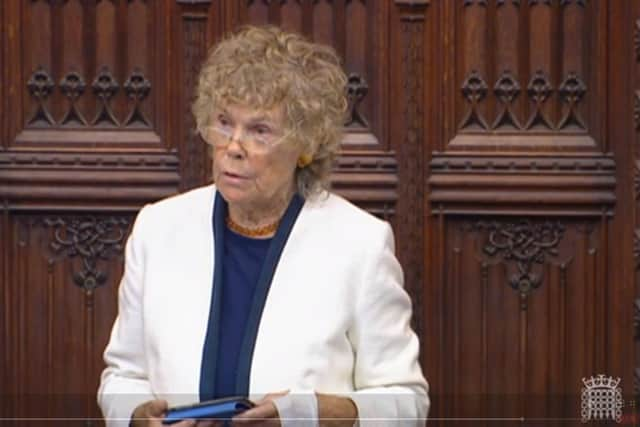Former secretary of state and Labour peer Lord Murphy says Legacy bill ‘drives a dagger through victims’
and live on Freeview channel 276
Former secretary of state and Labour peer Lord Murphy is spearheading a move at Westminster to ditch the “most severely disliked” measure from the NI Troubles (Legacy and Reconciliation) Bill, which critics have called an amnesty. The proposed law would provide immunity for people accused of crimes during the Troubles, as long as they co-operate with a new truth recovery body, known as the Independent Commission for Reconciliation and Information Recovery (ICRIR).
The bill, which is currently going through the House of Lords, would also halt future civil cases and inquests linked to killings during the conflict. Despite the government introducing a string of amendments to the draft legislation, it remains widely opposed by political parties, the Irish government and victims’ groups.
Advertisement
Hide AdAdvertisement
Hide AdLord Murphy, who has proposed an amendment to the bill which would scrap the immunity provision, said the upper chamber should “send back a message” to MPs. He said: “To send a signal to them that this House recognises the significance of the opposition to the bill in Northern Ireland would be a very powerful one.”


While comparisons had been made between the immunity measure and the early release of prisoners under the 1998 peace deal, Lord Murphy said the “big difference” was the latter move had the backing of a referendum at the time. “No-one in Northern Ireland is voting in favour of this,” he said. “There is no consensus in its favour. “The minister knows you simply cannot impose things on Northern Ireland. Imposition is entirely improper.”
Denying it was a so-called wrecking amendment Lord Murphy said: “It takes the part of the bill out which is most severely disliked. Why on earth is the government persisting in something that shouldn’t be imposed upon the people of Northern Ireland against their will?”
Addressing the Lords, former Labour MP Baroness Hoey, said it was “realistic” to accept that the government was “going to push the bill through,” but added: “So rather than try to wreck it completely, I think it is important that we make it as good as it possibly can be.” Baroness Hoey said a core principle of the legislation should be that immunity from prosecution "can not be granted unless there is the consent” of a victim’s family. “That means that the wishes of victims’ families are central to this process,” she added.
Advertisement
Hide AdAdvertisement
Hide AdFormer SDLP leader Baroness Ritchie said: “This issue goes to the heart of the legislation, but it also drives a dagger through victims in Northern Ireland – people who have endured immeasurable suffering because of the loss of their loved ones in unexplained circumstances, because many of them have not been told how or why that loss happened, or the nature of the wounds inflicted on them.”
Independent crossbencher Baroness O’Loan, the first police ombudsman in NI, said: “Nobody in Northern Ireland wants these provisions.”
DUP chairman Lord Morrow said: “I have not read of support for this legislation, yet the government are intent on pushing on and pushing it through.”
Responding, NIO minister Lord Caine said: “I do genuinely accept that this is the most controversial and challenging aspect of the bill. I have found this very difficult. “The legislation contains finely balanced political and moral choices that are challenging for many.”
Advertisement
Hide AdAdvertisement
Hide AdHe added: “We must be honest what we can realistically achieve in those circumstances where the prospects of prosecutions and convictions are vanishingly small. It’s an uncomfortable reality for many but it is the reality of the situation in which we find ourselves.
“In those circumstances the government’s objective is to provide greater information, accountability and acknowledgement to victims and families in a more timely manner and to more people than is possible under current mechanisms. The way we do that is by creating an effective information recovery process.”
Votes on the amendments are due to take place on Monday.